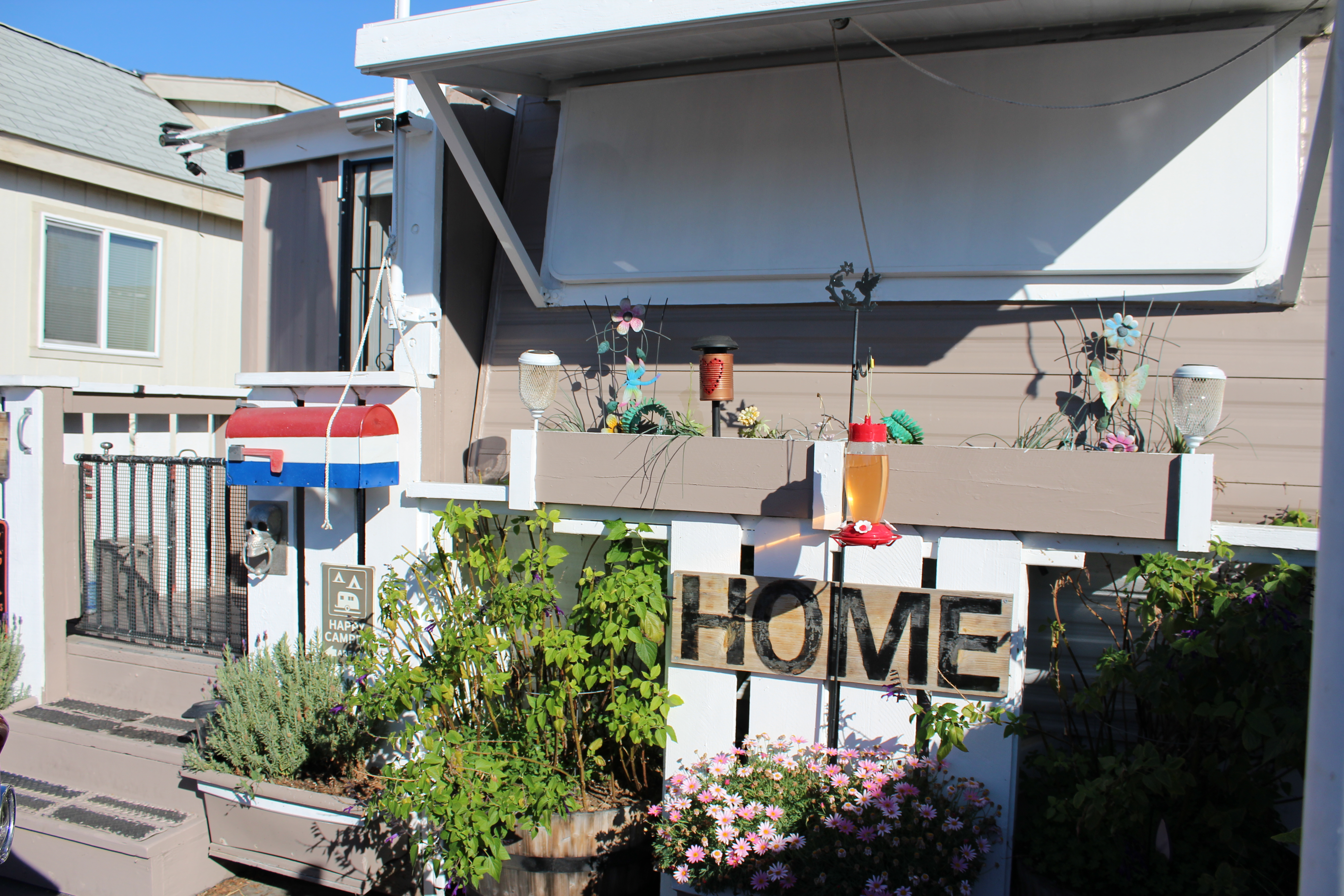CASTRO VALLEY, Calif. — The floor of the laundry room keeps flooding, residents are being forced to pay their rents online even though many do not use the internet, and new regulations and fees keep popping up out of the blue.
The takeover of Avalon Mobile Home Park in Castro Valley by Three Pillar Communities earlier this year has triggered a wave of concerns among residents, many of whom are facing lot rent hikes as high as 200% effective Feb. 1. Residents, speaking anonymously to the East Bay Echo, said they cannot afford for their lot rents to double, and many will be driven into homelessness if nothing is done.
“We can’t afford that,” one tenant said, “so what do we do with this house we have money invested in?”
Mobile home parks like Avalon play a vital role in providing unsubsidized affordable housing to a diverse mix of residents, including retirees, veterans, working families and people with disabilities. Yet their vulnerability to rent hikes and owner-driven changes remains a critical issue since residents typically own their homes but not the land underneath them.
Recognizing this, Alameda County implemented a mobile home rent stabilization ordinance in 1990, which currently caps annual rent increases at 4%, but there are exemptions for certain dwelling types within the park, such as recreational vehicles, commercial coaches and factory-built housing, which are not considered manufactured homes.
Tenants at Avalon invested significant time and resources transforming a variety of dwellings into permanent homes, enhanced with costly renovations and carefully tended gardens. Moving them would not only be expensive but would cause damage residents could ill afford to repair. They underscored the previous owner’s adherence to the 4% annual rent cap but said Three Pillar Communities is contesting that the ordinance applies to them.
That’s led residents to push the county Board of Supervisors to clarify the language in the ordinance and take any emergency actions needed to keep them in their homes.
Mobile home parks as investments
The mobile home park landscape has evolved significantly, moving away from mom-and-pop ownership to corporate investors who see the parks as profitable ventures. Three Pillar Communities is among them, aiming to maximize returns by raising rents and opposing rent control measures.
The Bay Area company has acquired at least 51 mobile home parks across the country, worth an estimated $247 million, since 2017, according to records submitted to the state of Oregon. Some of those mobile home parks have been sold for millions of dollars in profit. At the same time, Three Pillar Communities is trying to raise the lot rents in several of the mobile home parks it still owns, including ones in Colorado and nearby Petaluma, while opposing rent control laws in those same areas.
Three Pillar Communities did not respond to requests for comment, but its cofounder Daniel Weisfield stated his opposition to rent control and desire to raise rents in a 2022 article titled “Can ‘mission driven’ mobile home park investors raise rents to market and evict problem residents?“
“Our existing residents, who signed leases years ago, often have below-market rents, and we believe in raising those rents to market over time,” Weisfield wrote. “We believe this is good for society. If mobile home park owners do not earn a fair return on their investment, they will not be able to reinvest capital into their parks in order to keep them safe, clean, and functional for residents in the long term. And if rents get ‘trapped’ below market, then mobile home parks (which are a naturally occurring form of affordable housing) will eventually be redeveloped into other more profitable land uses.”
Justifications for raising rents
A couple of Avalon residents shared letters they received in late October stating their lot rents were “substantially below the fair market rent for comparable RV lots in Castro Valley,” placing the fair market rent at $1,300 to $1,450 per lot.
“We are raising your rent to less than the fair market price because we want to make sure that you have adequate time and opportunity to plan your finances,” the letter stated. “Your new lot rent remains extremely affordable for this location, and is considered affordable to Very Low Income households based on county and state housing affordability criteria.”
The letter added that the rent increase was necessary to cover the costs of improving the park, but residents said much-needed maintenance has been neglected since the superintendent was fired and his tools were removed from the premises. The superintendent used to drain the sewer every month, but residents said that hasn’t been done for about a year, which has caused recurrent flooding issues.
Many proposed improvements, like new signage and the transition to online payments, are unwanted.
“It’s not only inconvenient, but it’s purposely designed to take away our right of refusal,” one tenant said of the transition to online payments. “That was how we got around not paying fees and illegal charges.”
Since the new owners took over the park, tenants have faced a continuous onslaught of unexpected fees and charges. It’s reached a point where they’ve needed legal assistance to get the charges overturned. Even if tenants succeed in preventing the 200% rent hike, they say they’re concerned about what Three Pillar Communities will try to do next.
“Investors like this are creating homelessness across the state,” one tenant said. “If we don’t enact rent stabilization laws and ways to limit the power of investors, soon no one will be able to afford to live in California.”
Sonia Waraich can be reached at 510-952-7455.




